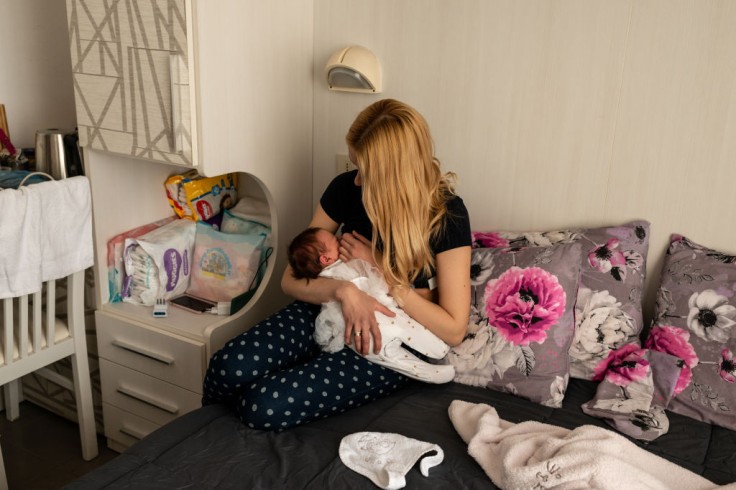
About one in 10 women go through postpartum depression with little awareness of how this may impact their health. The experts believe, however, that the outcomes of this mental health struggle may greatly improve with a solid support system and improved screening for moms who've had babies.
Postpartum depression may develop around the sixth week after the baby's birth and may look like a simple sleeping disorder, at first. But as days go on, the mother may experience other symptoms like withdrawal from family gatherings or difficulty in bonding with the baby.
Dr. Salim Surani of the Mayo Clinic told 3 News that moms who gave birth may be at higher risk for developing postpartum depression if they come from a family with a history of mental illness. The disorder may also affect moms who went through a traumatic event while pregnant or moms who do not have a solid support system post-pregnancy.
Thus, Surani believes support from family or friends is very important for mothers so that someone can look out for their wellbeing. This support system should also be someone that the mother is comfortable opening up to, without the fear of being judged or disregarded.
Happy Mom Who Struggled with Postpartum Depression
Pranaiya Oulapathorn was described by her closest friends as "a happy person" and she had such a rapport with children. So it became a shock to those who know her that her postpartum depression took a dark turn. She and her husband, Hamish Magoffin, welcomed their first baby, Arthur, in March 2021.
At first, Pranaiyas struggled with sleepless nights brought on by the endless circle of breastfeeding and pumping, per CNN. However, Pranaiyas, who was an overachiever in everything she did, felt that motherhood was out of her depth as she struggled with caring for Arthur. It did not help their situation when Thailand went into a lockdown, leaving the mom with no access to a support system except online.
Hamish said that his wife soon developed feelings of wanting to disappear. She also became obsessed with not becoming a good mother to Arthur. When the baby was four months old, she started talking about not wanting to be around her son any longer.
When the restrictions eased, the couple sought help and she was prescribed some antidepressants to manage her mild depression and high anxiety. However, the mom's mental condition did not improve. Instead, she became paralyzed due to her postpartum depression and had to be treated at a mental health hospital.
For a while, Pranaiyas's condition improved and she was able to join her family to celebrate her 10th anniversary with her husband. Those who saw Pranaiyas thought she was on her way to recovery but on the morning of the anniversary, the mother took her own life and Arthur's.
Her family has been appealing for better postpartum depression programs, including care, education and research for moms not just in hospitals in Thailand but all over the world.
Postpartum Depression Screening Program
In a recent nurse's conference in Los Angeles, experts from the Cedars-Sinai hospital released the findings of a new quality improvement study, published in the American Journal of Obstetrics & Gynecology-Maternal-Fetal Medicine, that underscored the need for hospitals to conduct postpartum depression screening. The study also highlighted the roles of the nurses in this screening program since they have mental health training and education and are constantly dealing with the patients.
Basically, the experts recommended coming up with a questionnaire designed to identify which mothers might be at risk for mood disorders two days after giving birth. If the questionnaire raises some red flags, a social worker should be tasked to visit the family when they leave the hospital and bring the baby home.
"If we care about our patients' mental health, screening must be made routine, just like we screen pregnant patients for diabetes," Dr. Sara Kirkpatrick said.
Cedars-Sinai will also conduct their postpartum depression screening program to include outpatient care and even moms who've had a stillbirth.
Related Article: Reverse Seasonal Depression: How to Manage SAD in the Springtime